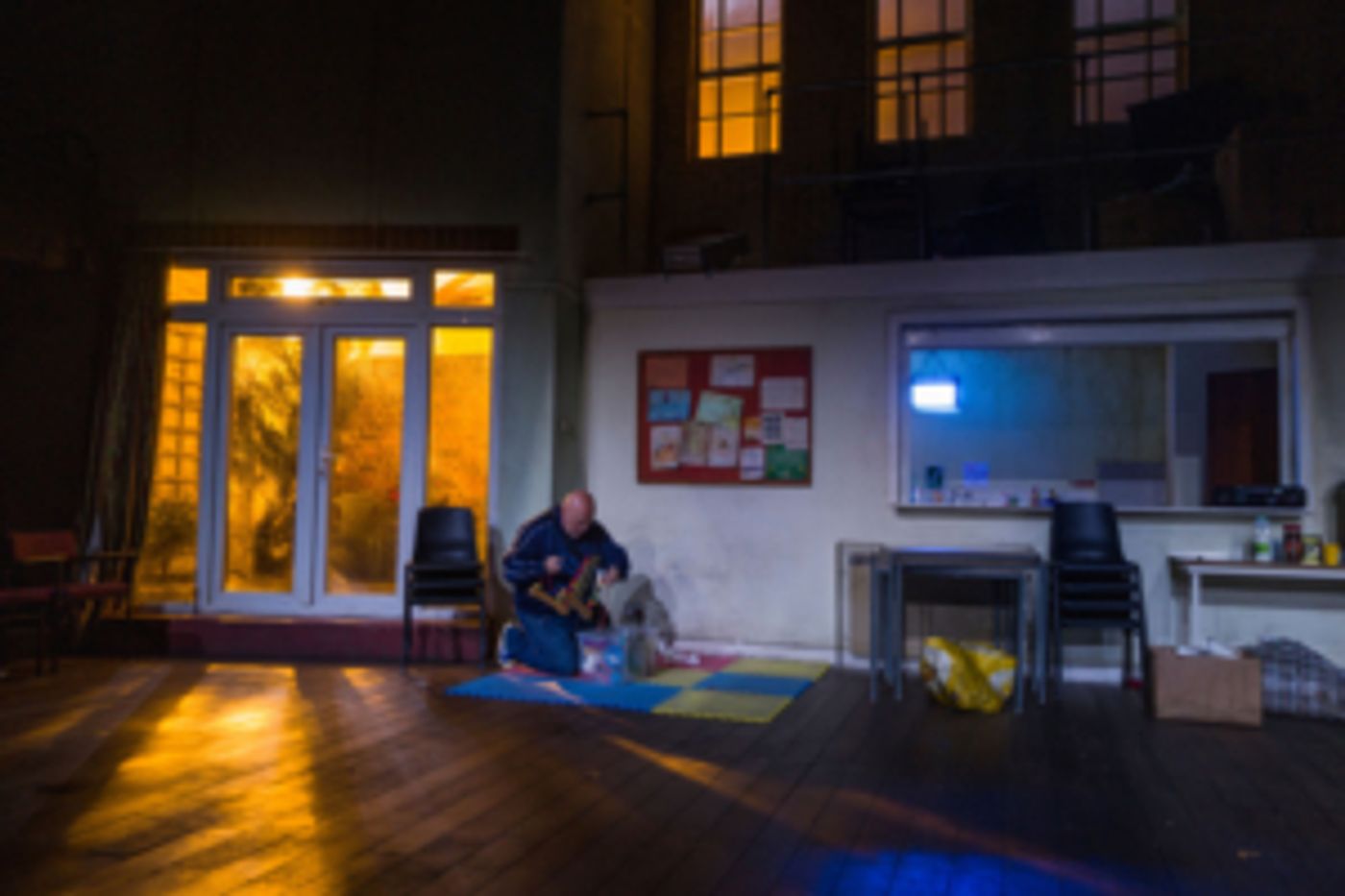Review: FAITH, HOPE AND CHARITY, National Theatre

![]() What does a community centre look like when we're a decade into austerity, the political manifestation of the "no such things as society" will? It looks like a leaking roof, stacked plastic chairs and carefully tended, much loved plants - Natasha Jenkins design gets all the institutional indifference offset by personal pride perfectly.
What does a community centre look like when we're a decade into austerity, the political manifestation of the "no such things as society" will? It looks like a leaking roof, stacked plastic chairs and carefully tended, much loved plants - Natasha Jenkins design gets all the institutional indifference offset by personal pride perfectly.
The question that writer / director Alexander Zeldin seeks to answer is subtly different though - not so much what does it look like as what does it feel like? The answer that emerges is that the food donated and cooked with care may fill stomachs, but what will fill the hearts of those who want to love and need to be loved in return? Is that really too much to ask for in our short span?
The people we meet come with plenty of baggage. Mason, all bonhomie one moment, all therapy-speak the next, has blanked out much of his childhood, so he can nostalgically revel in its few moments of joy and seeks to bring some of that almost forgotten emotion to the group as leader of the choir that binds them. Hazel's pain is summoned all too immediately, so immediately that she clams up the moment her son's name is mentioned. She holds the centre, as it rolls, pitches and yaws on the turbulent sea of bureaucratic caprice.
We get to know those who shuffle through the door as individuals: Karl quiet and unassuming until he sings; Tharwa (with livewire daughter Tala) slowly thawing and learning to hug; Bernard and Anthony, old and young, intelligent and creative... and angry.
We slowly focus more and more on Beth, a mother fighting for her daughter after making one mistake too many for the authorities' patience, and Marc, her teenage son, desperate to do the right thing by her and for himself, but as incapable as anyone when it comes to navigating the Kafkaesque legal procedures with which they are punished.
Bobby Stallwood's Marc gets the biggest punch in the solar plexus in a play not short of them with a single line that says more about why it's all too easy to judge "bad parenting". I was thrown back nearly 40 years to Yosser Hughes in The Boys From The Blackstuff and a famous quip in response to a seemingly innocent question about whether he was having trouble sleeping. That a central storyline from 1980 can be repeated in 2019, almost detail by detail, two whole generations on, is a damning indictment of our polity.
In other hands, these characters might never blossom from "type" to "human being", but the writing and the acting sees to that. The cast give painfully poignant portrayals of these broken, proud, decent people. It runs counter to the whole ethos of the piece to single out any actor, but Cecilia Noble's brings just the right level of can-do dignity to Hazel and Nick Holder wrestles with Mason's deep down roiling rage without ever letting it show too obviously. A special mention to Dayo Koleosho. who showed the release closed-off Karl felt in the music with such verve and delight that I can feel myself welling up now!
This subject matter can prove dangerous ground, with a couple of elephant traps sidestepped - the "white saviour" isn't white and those of us in the £50 seats are less obviously voyeuristic if we're actually in the Centre - as Zeldin's direction and Marc Williams's unforgiving lighting demands.
No doubt some will throw the "poverty porn" soundbite at The National Theatre for staging such a play, but Karl, Beth, Anthony and Mason et al are amongst us in the Dorfman Theatre (literally, the cast sit with us) and, of course, their brothers and sisters with us outside too.
Faith, Hope and Charity is at the Dorfman Theatre until 12 October.
Photo Sarah Lee
Reader Reviews
Videos

